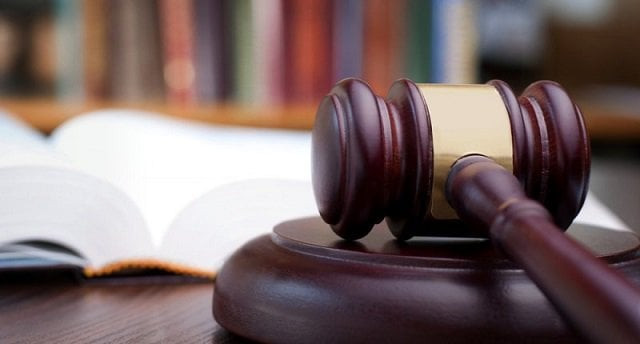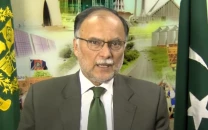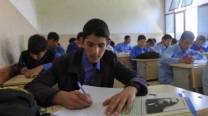Senate panel to get briefing on judges accountability
Summons NAB chairman to explain graft-buster’s powers to curb money laundering

Representational image. PHOTO: REUTERS
Senate Standing Committee on Legal Reform met at the parliament house to discuss judicial accountability and the National Accountability Bureau’s (NAB) power to curb money laundering under the Anti-Money Laundering Act 2010.
In the meeting convened by Senator Farooq H Naek, Senator Javed Abbasi said the current mechanism of accountability of judiciary is not effective and there should be role of the parliament in the process.
The Supreme Judicial Council (SJC) is the constitutional body that hears complaints against superior court judges on recommendation of the president of Pakistan.
Under Article 209 of the Constitution, the SJC includes the chief Justice of Pakistan, two senior most judges of the Supreme Court and two senior most chief justices of the provincial high courts.
Abbasi said many cases of misconduct are still pending “as judges don’t want to be held accountable.” "We should follow the model of other developed countries," he said.
Senator Anwar-ul-Haq Kakar said it is a common practice in the world, that laws are enacted after taking all stakeholders on board including civil society, media and bar associations.
The convener said it is appropriate to take briefing from Law Ministry’s secretary first and then take the opinion of stakeholders. “For visible change, international models may be considered,” he said.
The panel also summoned NAB Chairman Javed Iqbal to brief it on the accountability watchdog’s powers under the Anti-Money Laundering Act 2010 to curb money laundering.
Naek said Pakistan was placed on the Financial Action Task Force (FATF) due to money laundering and terror financing. “NAB can take action against money laundering if it comes under Section 9 of the Anti-Money Laundering Act 2010,” he said.
He observed that NAB, however, could not take action against all types money laundering, particularly when it does not involve graft. “It is important to define which case comes under the Act and what powers the Federal Investigation Agency (FIA) and NAB have in this regard. He sought a detailed briefing by NAB chairman, the FIA director general and secretary finance in the next meeting.
The committee convener expressed reservations over mechanism for acquiring land and making payments through Section 4-K of Land Acquisition Act and said people are facing severe problems.
He directed the interior ministry officials to finalise proposals in this regard and put them before the committee. Islamabad District Collector Waseem Ahmed briefed the committee about the current mechanism.
WITH ADDITIONAL INPUT FROM APP



















COMMENTS
Comments are moderated and generally will be posted if they are on-topic and not abusive.
For more information, please see our Comments FAQ